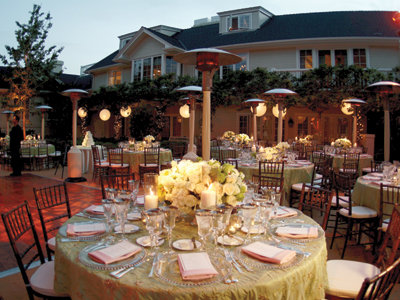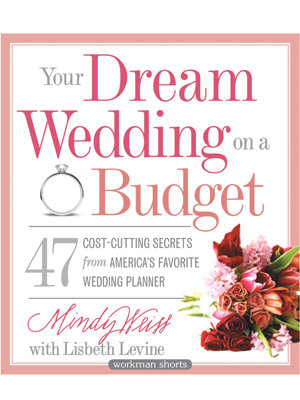Mindy Weiss, author of The Wedding Book, shares her best tips for planning weddings on a budget.

Before you start choosing colors and wrapping yourself in acres of silk, you have to face some spreadsheets. But don’t worry about your math skills—all you have to do is plug in some numbers. Managing a wedding budget is first and foremost a matter of organization, and all you really need is a good tracking system. Open a separate bank account for wedding expenditures. You’ll need to track every expense related to the wedding; you can create your own chart in Excel, or use a wedding software program. If you’re creating your own chart, make sure you have a column for estimated cost, another for actual cost and a third for deposit amount. Leave yourself room for notes regarding deposit due dates or the cost of upgrades or extras. Once you’ve settled on an organizational tool, work it into your routine. For some brides, that means saving up receipts and recording purchases once a week, maybe over coffee on Saturday mornings. For others, a more immediate system may work better.

Who’s Paying?
If you expect parents to foot part or all of the bill—or if they’ve already volunteered to do so—you’ll need to have a conversation about what they wish to contribute. Sometimes parents announce that they can contribute a fixed amount, or they may detail what they’re willing to pay for. They may ask to see estimates before they agree to anything. Some may not be able to help out at all. And some will want to know what the other side is contributing before they commit to helping out. If you find yourself stalled over specific items, you’re probably arguing about priorities rather than money. Resolve to get absolute clarity about those priorities: What is most important to you? Ask the same of everyone who’s funding part of the celebration. If a money issue arises, consult your priority lists to see if what you’re fighting about is really worth going to the mat for. Is it in your top three? Your mom’s top three? Can you let her have her way, or do you need to stand firm?

I recommend using what I call the FLOP. The groom’s family pays for flowers, liquor, orchestra and photography. They also cover the cost of the rehearsal dinner. The bride’s family pays for the rest. That said, any division that works for the families is a good one. Each family may decide to cover the costs for “their” guests. Parents may also wish to divide the expenses based on personal interests or connections. If the groom’s mother is friends with the best caterer in town, covering the food would be a natural fit for her.
Photos courtesy of Simone and Martin Photography



